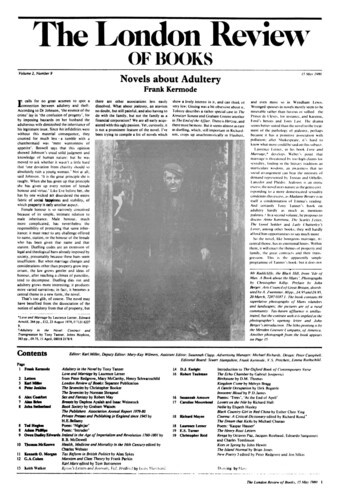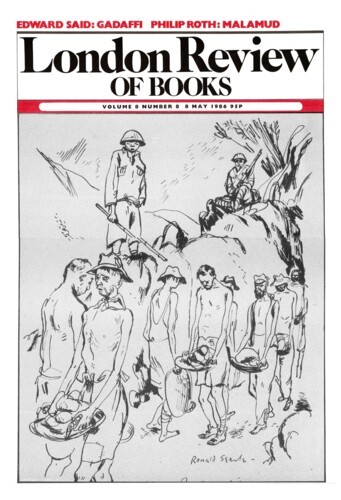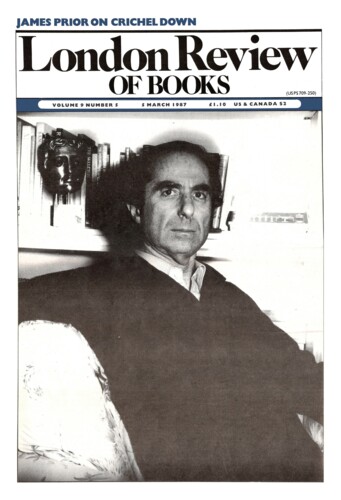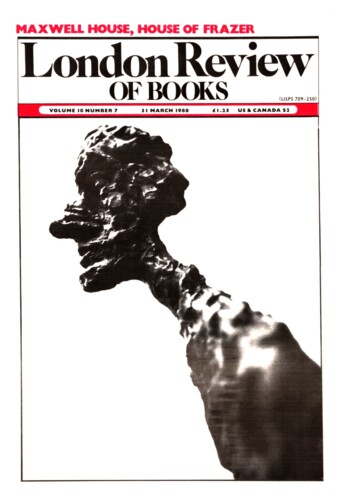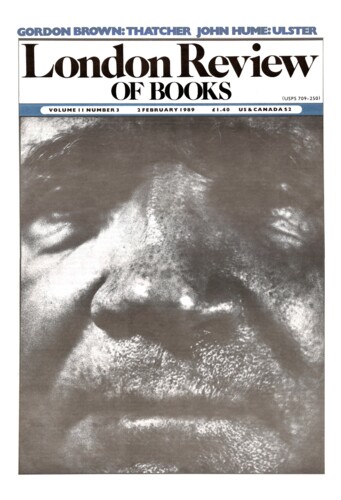Poem: ‘Intruder’
Adam Phillips, 15 May 1980
In the night house no one has the knack of keeping things quiet;
uncoloured walls fumble, furniture is posed in the nothing-snow, familiar and unreachable,
the depletion of lamps, the rage of book-shelves, bits chatter under- foot in the carpet;
I interrupt walking through a primitive community, I muffle myself for a drink.
